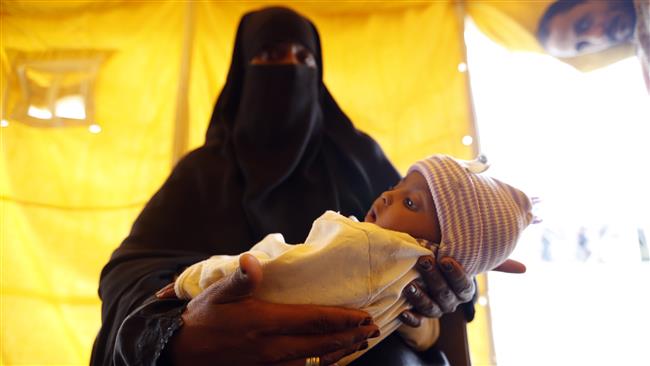
RNA - Aviation sources, speaking on condition of anonymity, said the flight was prevented from taking off from Djibouti to the Yemeni capital city of Sana’a, currently under the control of Ansarullah forces, presumably over the presence of three journalists working for British state-run broadcaster BBC, presstv reported.
“The [Saudi-led] coalition claimed that the security of the journalists could not be guaranteed in Houthi-controlled areas, and advised the three journalists to travel on commercial flights,” Ahmed Ben Lassoued, a spokesman for the United Nations Office for the Coordination of Humanitarian Affairs (OCHA) in Yemen, said.
“It's unfortunate and partially explains why Yemen, which is one of the world's largest humanitarian crises, is not getting enough attention in international media,” he added.
Ben Lassoued noted, “The lack of coverage is also hindering humanitarians' effort to draw the attention of the international community and donors to the humanitarian catastrophe the country is experiencing.”
An unnamed source in the Saudi-led military contingent later claimed that the administration of Saudi-backed and resigned Yemeni president Abd Rabbuh Mansur Hadi is the only party entitled to issue visas for foreigners, adding that visitors to Yemen must fly to the country’s southern port city of Aden, which is under the control of the former government.
Saudi Arabia has been striking Yemen since March 2015 to restore power to fugitive president Mansour Hadi, a close ally of Riyadh. The Saudi-led aggression has so far killed at least 14,300 Yemenis, including hundreds of women and children.
Despite Riyadh's claims that it is bombing the positions of the Ansarullah fighters, Saudi bombers are flattening residential areas and civilian infrastructures.
According to several reports, the Saudi-led air campaign against Yemen has drove the impoverished country towards humanitarian disaster.
Nearly 3.3 million Yemeni people, including 2.1 million children, are currently suffering from acute malnutrition. The Al-Saud aggression has also taken a heavy toll on the country’s facilities and infrastructure, destroying many hospitals, schools, and factories.
Also, the death toll of a cholera epidemic in Yemen reached 1,700 as Saudi Arabia's deadly campaign prevented the patients from travelling abroad for treatment and blocked the entry of medicine into the war-torn country.
The country's Health Ministry has already announced that 21 of a total 22 Yemeni provinces are threatened by the disease. On mid-May, it also declared a state of emergency in the capital Sana'a in connection with the epidemic.
The World Health Organization (WHO) has estimated that 7.6 million Yemenis live in areas with a high risk of cholera transmission.
The WHO now classifies Yemen as one of the worst humanitarian emergencies in the world alongside Syria, South Sudan, Nigeria and Iraq.
847/940